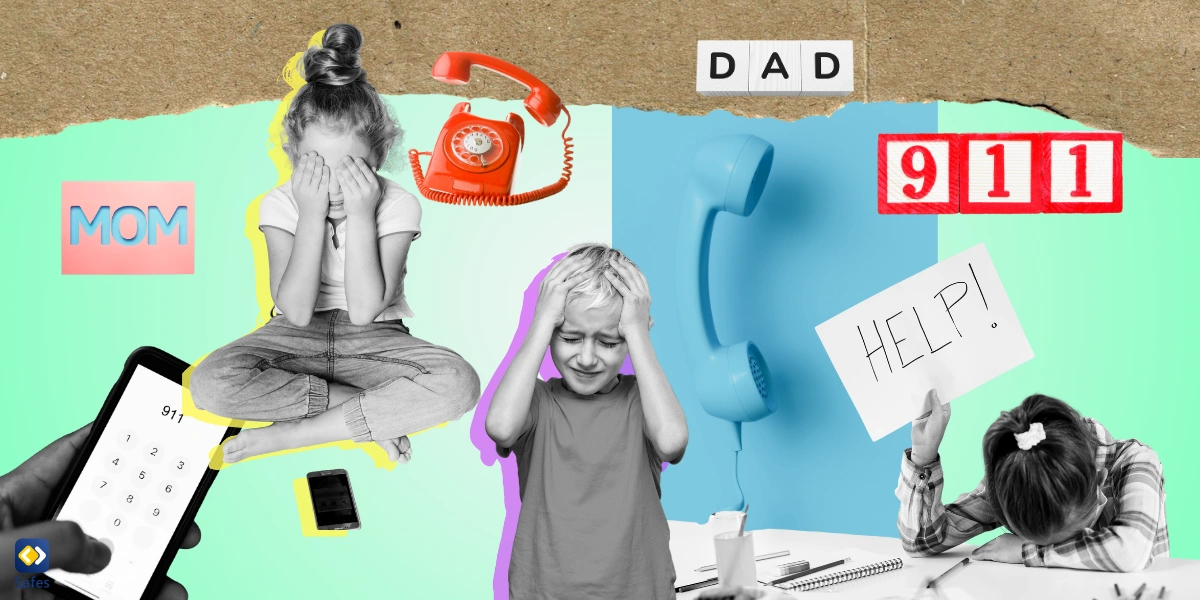In times of crisis or medical emergencies, having a reliable network of emergency contacts can be a lifesaver. Emergency contacts are individuals designated to be notified or contacted in case of an emergency involving the person who has listed them. Whether it’s a sudden illness, accident, or unexpected event, having trusted contacts readily available can expedite assistance and ensure timely intervention. In this comprehensive guide, we delve into the significance of emergency contacts, how to choose them wisely, and the steps to ensure their effectiveness in critical situations.
Understanding Emergency Contacts:
Emergency contacts are individuals designated by an individual to be notified or contacted in case of an emergency involving them. These contacts serve as points of reference for emergency responders, medical personnel, or authorities when the individual is unable to communicate or make decisions for themselves. Emergency contacts are typically listed in medical records, identification documents, emergency contact lists, and personal devices for easy access when needed.
Key Attributes of Effective Emergency Contacts:
Choosing the right emergency contacts is crucial for ensuring timely assistance and appropriate support in emergencies. Effective emergency contacts exhibit the following key attributes:
- Accessibility: Emergency contacts should be readily available and easily reachable in case of an emergency. They should have reliable contact information, including phone numbers, email addresses, and physical addresses, that can be accessed quickly by emergency responders or medical personnel.
- Responsiveness: Emergency contacts should be responsive and able to act promptly when notified of an emergency situation. They should understand the importance of their role as emergency contacts and be prepared to provide necessary information, make decisions on behalf of the individual, or coordinate assistance as needed.
- Trustworthiness: Emergency contacts should be individuals whom the individual trusts implicitly and feels comfortable confiding in during times of crisis. They should be supportive, compassionate, and capable of providing emotional support and practical assistance during emergencies.
- Knowledge of Medical History: Ideally, emergency contacts should have knowledge of the individual’s medical history, allergies, medications, and any relevant health conditions. This information is invaluable for medical personnel and can help guide treatment decisions in emergencies.
Choosing Emergency Contacts Wisely:
When selecting emergency contacts, it’s essential to choose individuals who fulfill the criteria mentioned above and who are willing and able to assume the responsibilities associated with the role. Consider the following factors when choosing emergency contacts:
- Family Members: Immediate family members, such as parents, spouses, siblings, or adult children, are often the first choice for emergency contacts due to their close relationship with the individual and their familiarity with the individual’s medical history and preferences.
- Close Friends or Neighbors: Close friends or neighbors who live nearby can serve as reliable emergency contacts, especially in situations where family members may not be readily available. Choose individuals who are trustworthy, dependable, and capable of providing assistance in emergencies.
- Healthcare Providers: Healthcare providers, such as primary care physicians, specialists, or therapists, can also be designated as emergency contacts, particularly if they are familiar with the individual’s medical history and treatment plan. Ensure that healthcare providers are aware of their role as emergency contacts and have updated contact information.
- Legal Representatives: In some cases, individuals may designate legal representatives, such as attorneys or guardians, as emergency contacts, particularly if they have legal authority to make decisions on behalf of the individual in medical or legal matters.
- Workplace Contacts: For individuals who spend a significant amount of time at work or travel frequently for business, colleagues or supervisors may be designated as emergency contacts. Ensure that workplace contacts have updated contact information and are aware of their role as emergency contacts.

Steps to Ensure Effectiveness of Emergency Contacts:
Once emergency contacts have been selected, it’s essential to take proactive steps to ensure their effectiveness in critical situations:
- Communicate with Emergency Contacts: Inform emergency contacts of their designation and provide them with relevant information, such as medical history, allergies, medications, and emergency procedures. Ensure that emergency contacts have updated contact information and know how to reach you in case of an emergency.
- Establish a Communication Plan: Develop a communication plan with emergency contacts outlining how they will be notified in case of an emergency and what steps they should take to provide assistance or support. Consider using multiple communication channels, such as phone calls, text messages, or emails, to ensure redundancy and reliability.
- Update Contact Information Regularly: Review and update emergency contact information regularly to reflect any changes in contact details, relationships, or preferences. Update medical records, identification documents, and emergency contact lists with current information to ensure accuracy and accessibility.
- Provide Authorization for Medical Information: Consider providing emergency contacts with authorization to access your medical records, communicate with healthcare providers, and make medical decisions on your behalf if necessary. This authorization can facilitate communication and expedite decision-making during emergencies.
- Rehearse Emergency Scenarios: Conduct regular drills or discussions with emergency contacts to rehearse emergency scenarios, review emergency procedures, and ensure readiness to respond effectively in case of an actual emergency. Practice communication protocols, decision-making processes, and coordination of assistance as needed.
Conclusion:
Emergency contacts play a crucial role in ensuring timely assistance, support, and intervention during emergencies. By choosing emergency contacts wisely, communicating effectively, and taking proactive steps to ensure their readiness, individuals can create a safety net that provides peace of mind and security in times of crisis. Whether it’s a medical emergency, accident, or unexpected event, having trusted contacts readily available can make all the difference in ensuring a positive outcome and minimizing the impact of emergencies on individuals and their loved ones.


